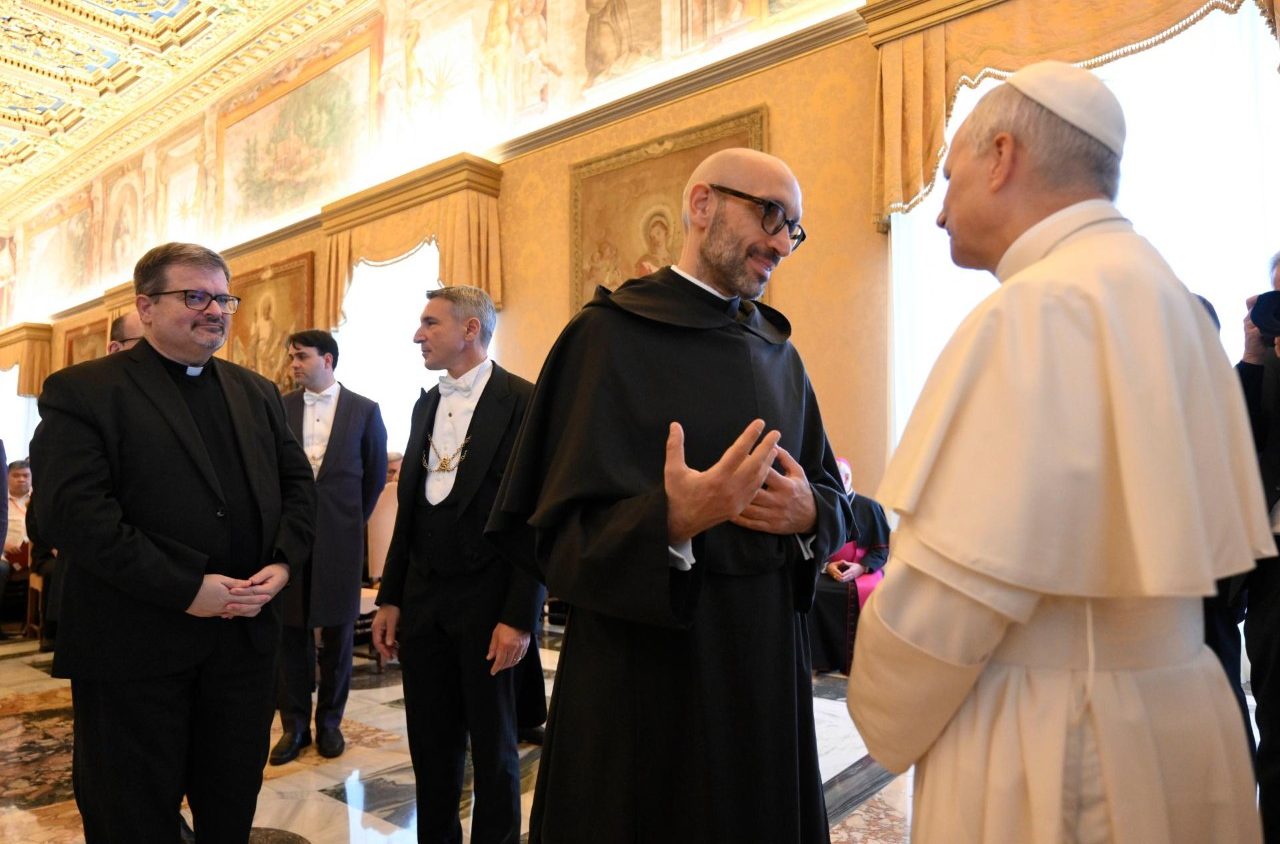Pope Leo XIV encourages the formation of “those who proclaim the Word of God” to support the liturgical initiation of the faithful and a deeper understanding of Christian worship.
Vatican News
Welcoming the participants in a formation course for diocesan officers of liturgical pastoral ministry, organised by the Pontifical Liturgical Institute of Sant’Anselmo in Rome, Pope Leo XIV, on Monday, encouraged them to strengthen liturgical education in dioceses and parishes and to foster a deeper understanding of Christian worship.
Welcoming the group at the start of their programme, the Pope noted that the initiative reflects the mission of the Sant’Anselmo institute, which serves the Church “in full fidelity to the liturgical tradition and to the reform desired by the Second Vatican Council.”
He recalled the call of Pope Francis in Desiderio desideravi to broaden access to the study of the liturgy. Quoting the letter, he said it is important “to spread this knowledge outside the academic sphere, in an accessible way, so that every faithful may grow in an understanding of the theological meaning of the liturgy.”
Strengthening liturgical and Biblical formation
The Pope highlighted the need for renewed formation efforts at the local level. “In dioceses and parishes, there is a need for such formation,” he said, adding that courses in Scripture and liturgy should be initiated where absent.
He proposed that the Pontifical Liturgical Institute help particular Churches explain the weekday and Sunday Lectionary and support the ongoing Christian and liturgical initiation of the faithful.
Pope Leo XIV asked directors of diocesan liturgical offices to give special attention to those who proclaim the Word of God, noting that thorough preparation for lectors should include “basic biblical competence, clear diction, [and] the ability to sing the responsorial psalm,” along with the capacity to compose the prayers of the faithful.
Continued implementation of the liturgical reform
Reflecting on the post-conciliar period, the Pope noted that much progress has been made in promoting liturgical formation, but acknowledged that “there is still much road ahead.
Let us not grow tired: let us take up again, with renewed vigour, the good initiatives inspired by the reform, and at the same time seek new paths and methods.”
He underlined the responsibilities of diocesan liturgical offices, which include ongoing formation for clergy and laity and the coordination of parish liturgical groups, cantors, lectors, and altar servers.
Their task, he said, is to foster “fruitful participation of the People of God” and a liturgy “attentive to diverse sensibilities and sober in its solemnity.”
Revitalising parish liturgical groups
Pope Leo XIV expressed concern that in some communities, liturgical groups have diminished or disappeared. He encouraged directors to support parishes in rebuilding them: “It is necessary to work so that this area of Church life may again become attractive, capable of involving people who are competent or at least inclined to this type of service.”
Finally, he invited them to collaborate with parish priests in forming teams dedicated to preparing celebrations and ensuring shared responsibility for singing, proclamation, and the decor of sacred spaces.
